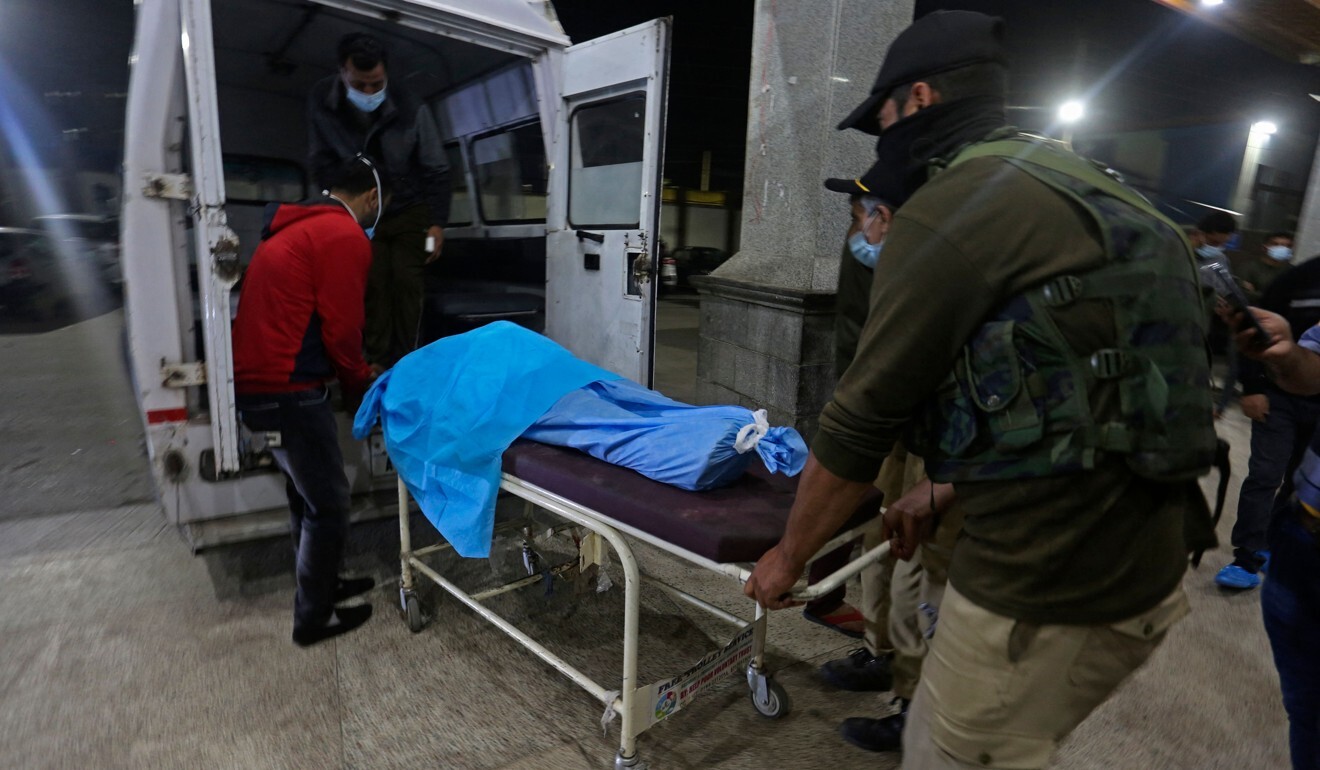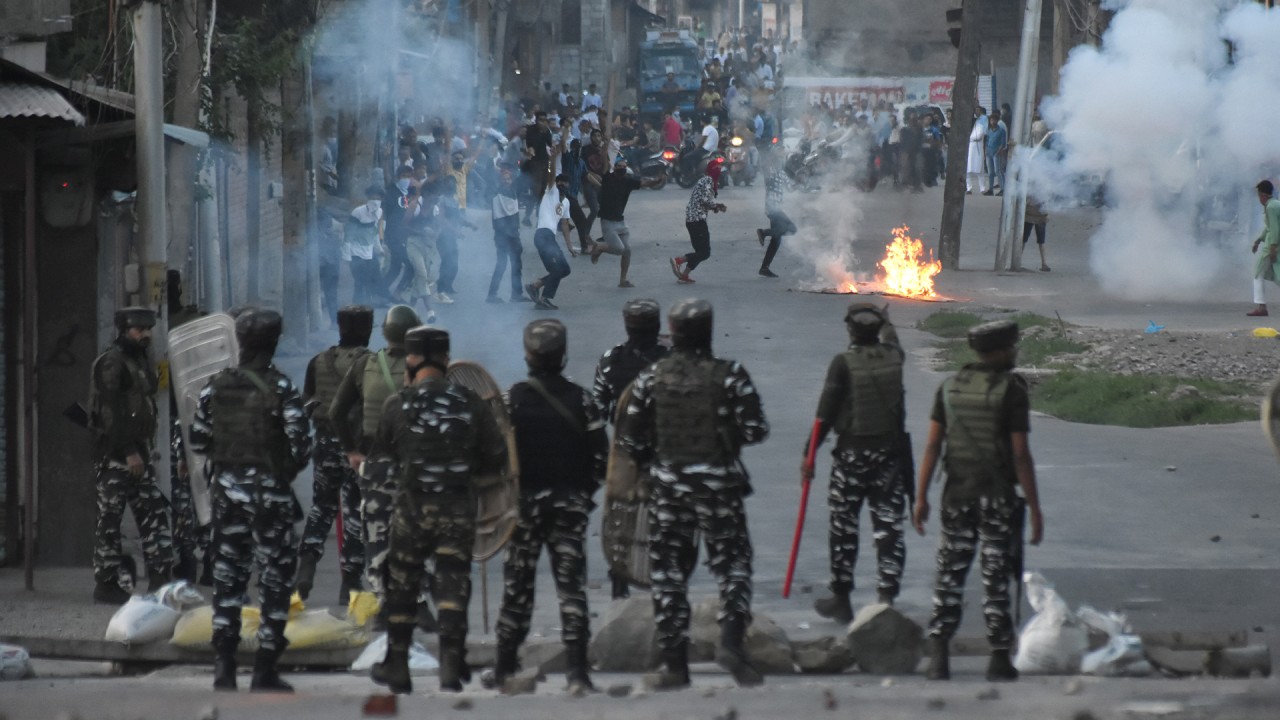
Thousands of migrant workers moved after 4 civilians killed in Indian Kashmir
- No group immediately claimed responsibility for the four deaths, which sent shock waves through minority communities in the disputed region
- The killings follow a series of street shootings last week that left seven civilians dead, including three Hindu and Sikh community members
While the trigger for the latest wave of attacks was not immediately clear, Kashmir has been the site of armed insurgency against New Delhi for decades. Kashmir is claimed in full by India and Pakistan but ruled in parts by both.
“We moved thousands of workers to secure places and are facilitating their return home,” a senior police official said, declining to be named as he was not authorised to speak to the media.
In other areas, security forces had intensified patrolling to prevent any militant activity, the official added.
A government spokesman in Kashmir’s main city of Srinagar declined to comment on the movement of migrant workers.
The decision to move workers came after an attack on migrant labourers from Bihar on Sunday.
Two labourers, who were Hindus from Bihar, a state outside the Himalayan territory, were shot in the southern Wanpoh area of Kashmir valley. A third was critically injured, police said.

The killings came a day after a street vendor and a labourer, also from Bihar, were killed in separate shootings. One was Muslim, the other was Hindu.
No group has immediately claimed responsibility for the four deaths, which have sent shock waves through minority communities in the region.
This was accompanied by a huge security operation and communications blackout with tens of thousands of extra soldiers joining the estimated half a million already on the ground.
Modi said the change was to end decades of violence and bring prosperity to Kashmir.
But locals said the laws enacted since then favoured Indians from outside the territory.
The latest killings come hard on the heels of a series of street shootings last week that left seven more civilians dead, among them three members of the local Hindu and Sikh communities.

01:38
Unrest after India locks down Kashmir following death of resistance icon Syed Ali Geelani
Those shootings were claimed by The Resistance Front (TRF) rebel group, which accused them of working for India’s security agencies.
In total, 32 civilians have been shot dead this year so far, most of them local Muslims.
Meanwhile, deadly clashes between insurgents and government forces have claimed roughly 30 lives – including soldiers and rebels – in the past two weeks.
Police said five TRF militants have been killed since last week, including two on Saturday.
Two soldiers died in a firefight near the ceasefire line between India- and Pakistan-controlled Kashmir on Saturday, the military said.
Kashmir was divided between India and Pakistan since their independence from British rule in 1947. The nuclear-armed rivals have fought two wars over its control.
An armed rebellion against Indian rule of Kashmir started in 1989 with groups demanding independence or merger of the region with Pakistan.
Tens of thousands of people, mostly civilians, have died in the fighting. Pakistan denies India’s repeated accusations that it supports the rebels.
The hundreds of thousands of migrant workers currently in Kashmir form the backbone of the region’s workforce in agriculture and construction. Some of them said they now fear for their lives.
“We have seen worse times, but were never targeted. This time, we are afraid,” said 32-year old Mohammed Salam, originally from the northern state of Bihar, who has worked in Kashmir for the last six years.
Salam said police picked him up, along with others, from rented accommodation on Sunday night and moved them to a protected area. “We can’t sit idle here,” he said, “We will go back.
Additional reporting by Reuters

.png?itok=arIb17P0)